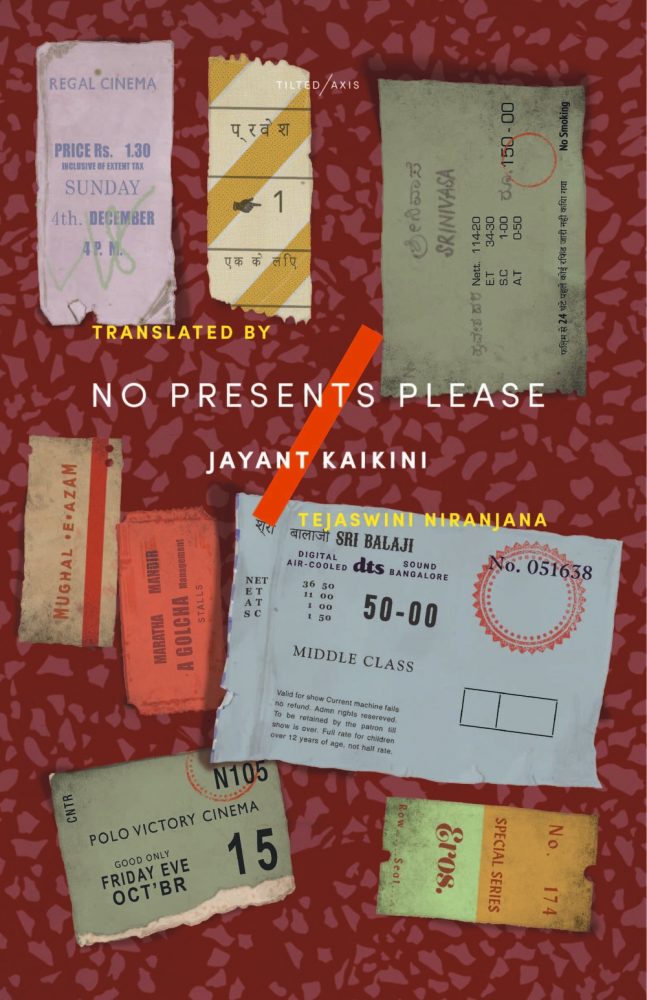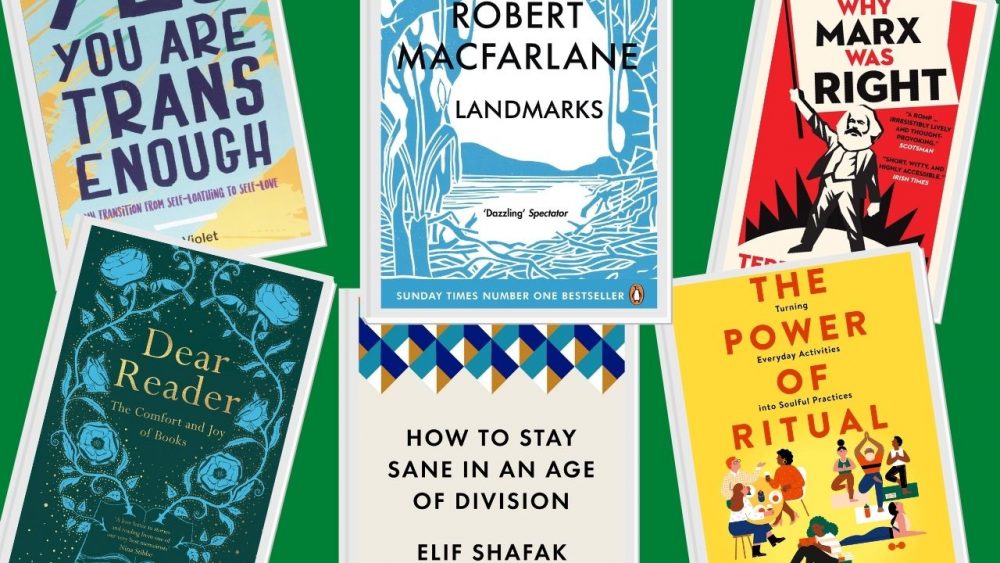Translated from the Kannada by Tejaswini Niranjana
I love big, sprawling, bustling cities. I love the way they constantly shift and change, never staying the same from one year to the next. I love the electric energy, the speed of life, and the background hum that never quietens down.
One thing that makes cities so alluring is how mysterious they are. So many people leading so many unknowable lives. Jayant Kaikini’s No Presents Please attacks that mystery head-on and exposes the lives of the individuals who form Mumbai.

Originally written between 1986 and 2016, the stories in No Presents Please spread far across the city of Mumbai. They take the ordinary, mundane lives of normal people — young couples, lonely bachelors, struggling workers, winners and losers, invisible people – and shine a quiet spotlight on them.
These wonderful little tales ask us to stop and wonder about the guy in the flat above us whom we’ve never talked about, or the bus driver we see every morning but treat like he’s part of the bus, or the angry family next door who are always fighting but we don’t know why.
No Presents Please is set in Mumbai; every person in every story has made this city a part of them; it has raised them, and they are a part of it. They keep its lights on. It’s through them that we get to understand the city from so many different angles.
If you’ve never been to Mumbai (as I haven’t), you’ll feel like you know its streets and alleys by the time you put down No Presents Please. You’ll understand a little better the hopes and struggles and traditions and feelings and routines of its people. This is a book about Mumbai and the people who define the city.
In the book’s first story, City Without Mirrors (originally written in 1999), a Mumbai man in his forties — Satyajit — is happily single, free and untethered to anything at all. Married, as he says, to his city. One day, he is approached by a desperate older man who begs Satyajit to meet his thirty-nine-year-old daughter.
Satyajit is quietly polite but unmoved, and yet he finds himself caught up in the fantasy version of this woman that has wormed her way into his mind. The story ends inconclusively, with Satyajit remaining content but the father in an increased state of anxiety and desperation. It’s a moving story – equal parts amusing, frustrating, and empathetic.
In the titular No Presents Please, a young couple, soon to be married, meet beneath an unfinished flyover, “the iron spikes of the columns between the unfinished stretches on either side seemed to be piercing the sky”. There, they discuss wedding invitations.
Their discussion deepens as it goes, tackling language and etymology, marriage tradition, balance in relationships, money, class, and caste. It’s a short tale, quiet and sweet, but revealing of so much. It demonstrates so artfully the weight of a single sentence or a short, simple conversation. At once delicate and heavy.
One of my favourite stories in the collection is Unframed, a tale which begins with the sentimental before veering into the surreal. It starts with a man who owns a framing shop, passed down to him from his father.
It romanticises and gives depth to the art of framing, and the responsibilities of those who do it. This romanticism is embellished when he obsesses over three abandoned photos that have remained in his shop and were never collected.
Like every story in this collection, Unframed takes a person, a job, or a situation and uses it to frame — no pun intended — larger issues and concepts about city life, family relationships, local traditions, neighbourhood bonds, habits and routines, and more. Unframed does this in a way that is both experimental and charmingly sentimental.
Another favourite, originally penned in 1997, appears towards the end of the book. A Truckful of Chrysanthemums tells the story of a family maid/servant named Durgi. Durgi works diligently for a simple middle-class family, until she begins to fall desperately ill.
Despite how weak she becomes, the family don’t have the heart to dismiss her. Whispers travel across the chawl and Durgi becomes a tragic case.
A Truckful of Chrysanthemums is a fantastic, short example of the elegance of this collection. In a chawl of tenement homes, filled with noise and bustle and a thousand smells, it’s hard to even imagine the pain and joy and fear that is experienced by every tenant every day. This story offers us an example that tugs particularly hard on our heartstrings.
In a talk I went to in early 2020, Deepa Anappara, author of the incredible Djinn Patrol on thee Purple Line, talked about some of the language used to describe buildings, vehicles, food, and aspects of daily life in India. She said that readers may not know these words but it’s easy enough to look them up, and knowing them means knowing the story and setting better. No Presents Please offers us that same opportunity.
When I began reading, I had no idea what a chawl was. But chawls are a common and key detail of Mumbai life. Learning about them, and becoming comfortable with the word, means knowing the people of these stories better. It’s exciting to be offered a chance to learn more about any culture, any history, any town. No Presents Please asks us to be engaged, to empathise, and the payoff is worth every moment.
Another thing I knew nothing about was the Kannada language of India. To read a book originally penned in a language I hadn’t even heard of before felt like a gift. I was being offered, through the wonder of Tejaswini Niranjana’s translation, a window into a world I didn’t have a clue existed. That is as exciting as it is educational. The same can be said for every story in No Presents Please.
Conclusion
The variety on offer in No Presents Please is extraordinary. The variety of places, jobs, ages, situations, emotions, and backgrounds. This book is a full tapestry of Mumbai life; it’s glistening and dirty all at once. It’s exciting and heartbreaking. It’s fast and slow, frightening and gripping.
This book, like the city in which it’s set, is humming with the lives and loves and losses of ordinary, fascinating, terrible, wonderful people.



